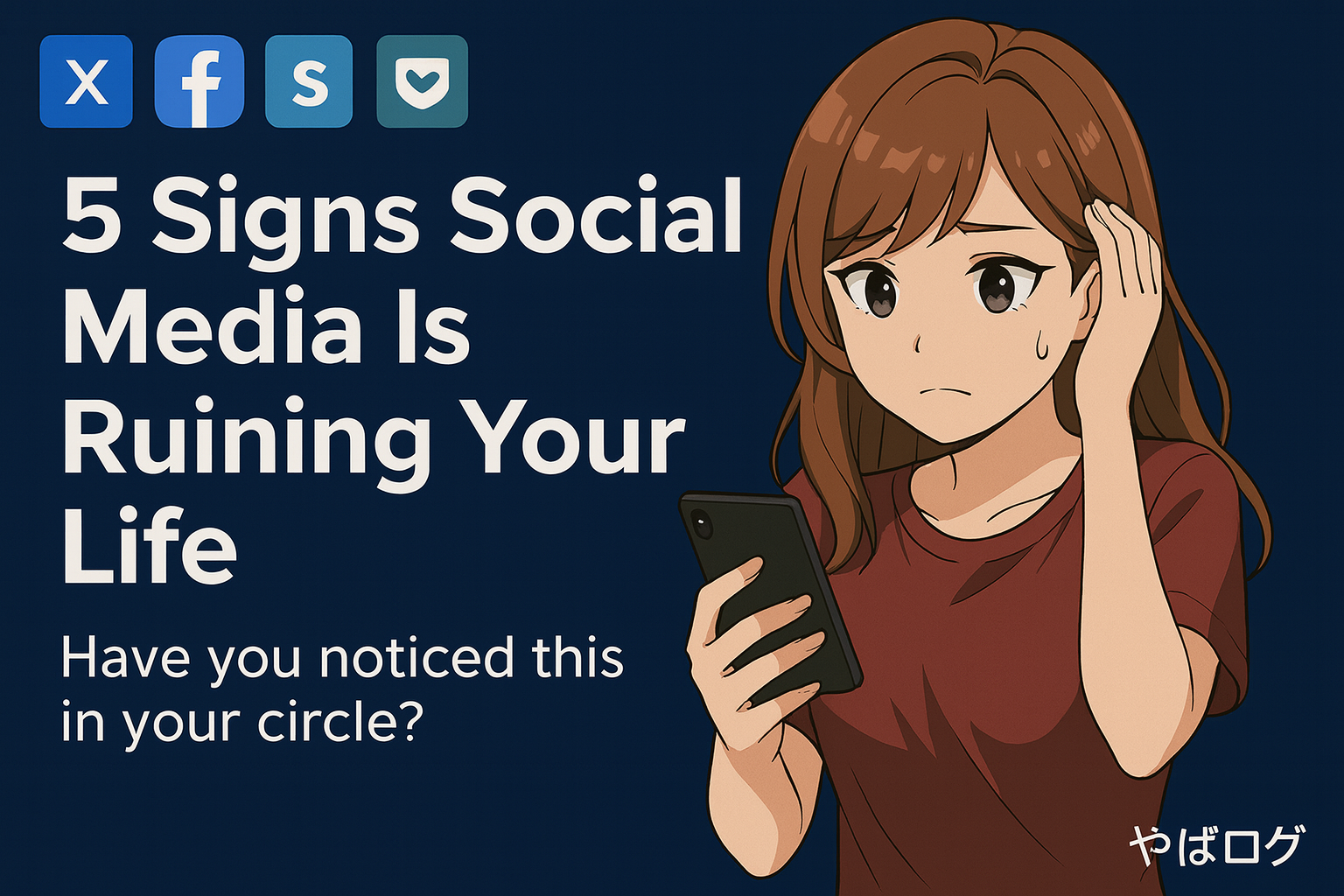Do you know someone like this?
They get so absorbed in social media that they lose touch with real-life relationships and even their job. Always glued to their phone, chasing the timeline, they end up sleep-deprived, behind at work, and eventually damaging their relationships with family and friends.
What once felt like “fun and convenient” turns into a situation where social media controls their life. Sadly, this is not rare at all.
In this article, we’ll break down five common traits of people who let social media ruin their lives, why these patterns are dangerous, and how you can avoid them.
1. Chasing Validation at All Costs
The biggest appeal of social media is instant feedback—likes, shares, comments.
But once you start measuring your self-worth by those numbers, danger is near.
For example:
- Checking your phone first thing in the morning to see reactions on last night’s post.
- Feeling down if engagement is low.
- Posting more extreme takes or revealing photos just to grab attention.
This is a textbook case of approval addiction. If the validation doesn’t come, anxiety kicks in, and soon you’re no longer acting as yourself—you’re performing for the algorithm.
Over time, real-life relationships fade in importance, and digital metrics become your only compass.
How to fix it:
- Turn off notifications after posting and avoid checking for a set period.
- Judge your worth by actions and achievements in real life, not by “likes.”
- Think of online reactions as a bonus, not the main goal.
2. Blurring the Line Between Online and Real Life
Social media only shows fragments of reality.
But for people who feel isolated offline, it can become their entire world.
Example: Someone with no one to talk to in real life vents anonymously on Twitter, then finds comfort in strangers’ sympathy. Gradually, they begin to believe, “My real home is online.”
The problem? Once dependency sets in, real life feels painful. Hanging out with friends feels shallow, job achievements don’t matter, and escape into social media becomes constant.
How to fix it:
- Set a daily time limit for social media use.
- Try to turn online interactions into real-life connections.
- Remind yourself: social media is a tool to support reality, not replace it.
3. Losing Control of Emotions
Social platforms reward emotional posts—anger, sadness, outrage spread the fastest.
But impulsive outbursts can quickly backfire:
- Complaining about your boss → screenshot spreads → career damage.
- Posting about a fight with your partner → awkward fallout with real-life friends.
These are mistakes born from unprocessed emotions. And once something is online, you can’t fully erase it—it may affect future jobs and relationships.
How to fix it:
- When emotions run high, wait at least 30 minutes before posting.
- Use draft mode—re-read with a cooler head.
- Keep negative venting for a private journal, not the internet.
4. Treating Social Media Like a Diary
Posting every lunch, every outing, every family chat… it may seem harmless, but it comes with risks:
- Revealing your home or workplace.
- Exposing family or partner’s privacy.
- Losing the ability to enjoy life without “content.”
When “sharing” becomes the purpose of your day, you stop living for yourself—you live for the feed.
How to fix it:
- Always ask, “Is this safe to share publicly?” before posting.
- Avoid posting personal details or location data.
- Separate “recording” (private notes) from “sharing” (only what’s valuable).
5. Comparing Yourself to Others’ Highlight Reels
Social media is a stage for curated “wins”: trips, weddings, promotions, fancy dinners.
Almost no one posts failures or insecurities.
Scrolling through only highlights makes you feel inferior. Even though everyone has struggles behind the scenes, the illusion of perfection sparks envy and depression—especially for younger people or those with low self-esteem.
How to fix it:
- Remind yourself: feeds are highlight reels, not full reality.
- Compare yourself only to your past self—track growth, not others’ lives.
- Curate your feed: follow accounts that inspire, educate, and uplift you.
Final Thoughts: Social Media Is a Double-Edged Sword
Social media is fun and powerful—but used poorly, it can derail your entire life.
Runaway validation-seeking, escapism, emotional outbursts, oversharing, toxic comparisons—these are traps anyone can fall into.
But when used wisely, social media is an incredible tool for connection, growth, and opportunity.
The key is to stay in control.
Be the one who uses social media, not the one being used by it.
Riko’s Advice 💡
“In both investing and social media, the rule is the same: never let emotions control your decisions.
Stay calm, set your own strategy, and remember—the true value of your life can’t be measured by likes or follows.”




コメント